33 Wonderful Benefits Of Banana For Skin, Hair, And Health
Americans consume 13.4 lbs of bananas on average per year, and here's why!

Image: ShutterStock
Banana is a simple fruit, easily available, and is a nutrition powerhouse. Banana benefits are many, and it exerts a positive effect on your overall health.
Want to know how this delicious fruit can promote your overall health? Scroll down to know!
 Know Your Ingredient: Banana
Know Your Ingredient: BananaWhat Is It?
A yellow or green, long, curved fruit with a soft, white inside that has a sweet taste.
What Are Its Benefits?
It improves digestive and brain health, treats diarrhea, reduces stress, and moisturizes skin and hair.
Who Can Consume It?
Anyone can consume this fruit except people with diabetes, kidney disease, and latex allergy.
How Often?
You can consume 1 to 2 bananas daily.
Caution
Excess consumption may cause headaches, sleepiness, tooth decay, and high blood sugar levels.
In This Article
About Bananas
It is one of the most widely consumed fruits on the planet. And that’s incredibly good news (we will tell you why a little later). Speaking in botanical terms, banana belongs to the family of Musaceae. The scientific name of the fruit is Musa acuminata Colla.
Banana is called kela in Hindi, arati pandu in Telugu, vazhai pazham in Tamil, bale hannu in Kannada, and ethapazham in Malayalam. The fruit is variable in color, size, and firmness. It is one of the widely cultivated crops in the tropical and subtropical zones. Though there is no sharp distinction between bananas and plantains, the former is the softer variety while the latter is more firm.
In terms of monetary value, bananas are ranked fourth amongst the world’s food crops. They are very popular and come in several varieties –
Apple bananas, which are exceptionally sweet. They are also called candy apple bananas. They have firm flesh that has a slight pinkish tone.
Cavendish bananas, which are the most common variety. They are long, yellow, and slightly sweet. The unripe version is green. The ripe version is yellow, which then goes on to become super soft and brown.
Lady finger bananas, which are smaller and sweeter than the common type.
Pisang Raja, which are often used to prepare banana fritters. They are popular in Indonesia.
Red bananas, which are red (obviously!) and the sweetest of the lot.
Cooking bananas, which are similar to plantains, and are often considered a nice replacement for potatoes. You can roast or steam or even fry them into chips.
 Trivia
TriviaWell, that’s a lot of ‘bananas’. And all this boils down to one question – are bananas really that good for you?
Key Takeaways
- Bananas improve heart health, reduce blood pressure, and boost kidney function because of potassium.
- These fruits enhance cognitive function and nerve activity because of vitamins and magnesium.
- They strengthen bone health by maintaining calcium loss because of potassium and magnesium.
- Bananas treat diarrhea and provide electrolyte requirements for the body through the BRAT diet.
Are Bananas Good For You? How?
They are super-rich in antioxidants and other nutrients. That settles it, doesn’t it?
One banana contains about 467 mg of potassium. Potassium is vital to control blood pressure, which, in turn, protects your heart. The same banana has just 1 mg of sodium. Bananas also contain vitamin B6 that prevents anemia and coronary heart disease.
The fiber in bananas takes care of your digestive health and promotes weight loss (1). The fruit (the green and unripe variety) is also high in resistant starch, a type of indigestible carbohydrate that acts like fiber. This promotes colon health and lowers blood sugar post meals (2), (3).
Bananas are also rich in magnesium that might prevent type 2 diabetes (4).
According to a recent study, about 50% of the United States population consumes less than the Estimated Average Requirement (EAR) of magnesium intake from food. Additionally, 18% men and 23% women in France consume insufficient amounts of magnesium. Researchers have also found a link between inadequate magnesium intake and ischaemic heart disease factors.
They contain high levels of tryptophan that promotes mood and aids in depression treatment. The vitamin B6 also helps you to sleep well. The potassium in bananas might also improve sexual health in men.
All this simply tells us that banana benefits us in incredible ways – the credit for which must be given to the nutrients the fruits are replete with.
What Is The Nutritional Profile Of Bananas?
| Principle | Nutrient Value | Percentage of RDA |
|---|---|---|
| Energy | 90 Kcal | 4.5% |
| Carbohydrates | 22.84 g | 18% |
| Protein | 1.09g | 2% |
| Total Fat | 0.33 g | 1% |
| Dietary Fiber | 2.60 g | 7% |
| Vitamins | ||
| Folates | 20 µg | 5% |
| Niacin | 0.665 mg | 4% |
| Pantothenic acid | 0.334 mg | 7% |
| Pyridoxine | 0.367 mg | 28% |
| Riboflavin | 0.073 mg | 5% |
| Thiamin | 0.031 mg | 2% |
| Vitamin A | 64 IU | 2% |
| Vitamin C | 8.7 mg | 15% |
| Vitamin E | 0.10 mg | 1% |
| Vitamin K | 0.5 µg | 1% |
| Electrolytes | ||
| Sodium | 1 mg | 0% |
| Potassium | 358 mg | 8% |
| Minerals | ||
| Calcium | 5 mg | 0.5% |
| Copper | 0.078 mg | 8% |
| Iron | 0.26 mg | 2% |
| Magnesium | 27 mg | 7% |
| Manganese | 0.270 mg | 13% |
| Phosphorus | 22 mg | 3% |
| Selenium | 1.0 µg | 2% |
| Zinc | 0.15 mg | 1% |
| Phyto-nutrients | ||
| Carotene-α | 25 µg | — |
| Carotene-ß | 26 µg | — |
| Lutein-zeaxanthin | 22 µg | — |
One serving of banana has about 110 calories, 30 grams of carbohydrates, and 1 gram of protein. It is naturally free of fat, cholesterol, and sodium.
One banana also contains about 450 mg of potassium, 34 mg of magnesium, and 3 g of dietary fiber.
Even the banana peel contains vitamins B6 and B12, along with magnesium, potassium, protein, and fiber. It is also rich in phytochemicals and phytonutrients (5). The peel, by the way, is edible and eaten in several parts of the world. Moreover, Banana peels’ benefits go beyond their nutritional value. They offer a range of uses from culinary applications to natural skincare solutions.
Now we come to what we spoke initially – bananas are one of the most widely consumed fruits in this world, and that’s very good news. Why? Because of their magical benefits, which you will see right now.
What Are The Health Benefits Of Bananas?
1. Improve Heart Health
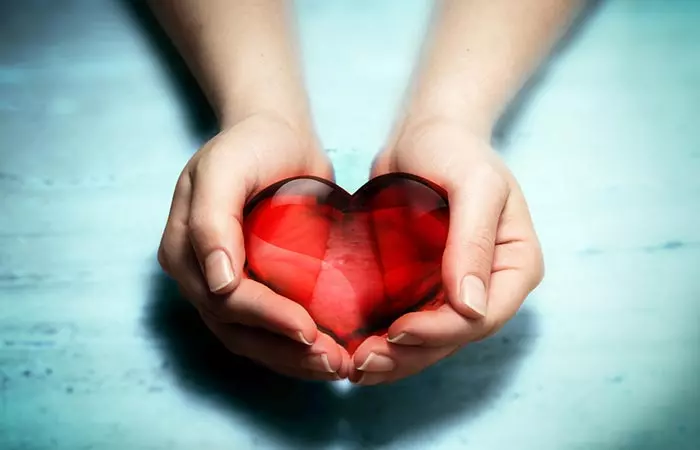
A report by the Harvard Medical School says that potassium deficiency can cause disturbances in heart rhythm. Bananas, being a rich potassium source, can help counteract this problem (6). (Too much potassium could be bad for the heart. Hence, take care.)
The heart is a smooth muscle that depends on potassium for proper contraction and expansion. Low potassium levels, a condition called hypokalemia, may lead to heart palpitations.
New research suggests that one banana a day can cut your risk of heart attack by a third (7). This could also be associated with other healthy lifestyle habits like abstaining from tobacco and regular exercise.
The heart also contains various potassium ion channels, which could be another reason bananas are so good for heart health (8). And as frightening as it might sound, extremely low levels of potassium can even cause your heart to stop (9). According to the National Heart, Lung, and Blood Institute, banana is one of the fruits to be taken for a healthy heart (10).
According to the University of Maryland Medical Center, potassium helps lower blood pressure levels. But exercise caution with potassium supplements – never take them without checking with your doctor (11). One study states that having two bananas a day can lower blood pressure by as much as 10 percent.
According to the American Heart Association, potassium reduces the effects of sodium. But consuming more potassium must also be combined with regular exercise and a healthy diet for maintaining heart health (12). And people suffering from kidney disease should restrict the consumption of potassium.
A high sodium intake causes your body to retain water – and this elevates blood pressure. Potassium works to reduce this water retention, displaying a positive effect on blood pressure. It also boosts kidney function, which helps flush sodium out of the body. The nutrient also relaxes the walls of the arteries (13).
2. Enhance Brain Health
Bananas are also rich in vitamin B6, which improves cognitive function. In one study by Tuft’s University, men with higher concentrations of vitamin B6 performed better in memory tests. And the magnesium in bananas facilitates the electrical activity between the nerve cells in your brain.
More importantly, the cells in your brain utilize glucose as fuel. Since our brain cannot store glucose, we must regularly supply it. Bananas (as they contain fiber) release their sugars slowly into the bloodstream, and your body uses this sugar more gradually than refined sugar (pastries and candies, etc.) – this provides a steady supply of glucose to your brain.
The potassium in bananas also keeps the oxygen levels in the brain cells normalized. The fruit is also rich in manganese that is known to prevent brain conditions like epilepsyi A central nervous system disorder characterized by seizures, unconsciousness, or odd behavior due to fluctuations in brain activity. and Parkinson's diseasei A central nervous system disorder characterized by stiffness and tremors that deteriorates with time. (14), (15). The serotonin and melatonin in bananas promote stress relief.
We already saw bananas are rich in vitamin B6. The deficiency of this vitamin can also cause confusion, depression, and peripheral neuropathyi Damage to peripheral nerves (present away from the brain and spinal cord) resulting in weakness, numbness, and pain in the extremities. (16). Eating bananas regularly can improve nerve and brain function. They help boost concentration as well.
Studies have also shown that potassium in bananas can help prevent stroke in old age (17). And in the case of post-menopausal women, eating bananas could cut the risk of stroke by 12 percent (18). According to the American Academy of Neurology, individuals with a low potassium intake could be 1.5 times more likely to suffer from a stroke (19). Though potassium doesn’t have an effect on hemorrhagic hemorrhagic strokei A fatal condition in which trauma or high blood pressure ruptures a blood vessel, causing internal bleeding in the brain. that is caused by sudden bleeding (the less common type), it does help combat ischemic strokei A fatal condition where a blood clot or narrowed blood vessels block blood flow in the brain, killing its cells. (which is what 80 percent of the strokes are) (20).
3. Promote Bone Health
According to the National Osteoporosisi A bone disorder that arises when bone composition or structure alters or bone mass and bone mineral density decline. Foundation, potassium in bananas is good for bone health (21). Bananas are also good sources of silicon, which, as per certain preliminary studies, can contribute to bone health (22). And the magnesium in the fruit is another important nutrient for bone structure (23).
Foods rich in potassium also produce alkali in the body to maintain the acid-base balance. This is important to note because when a body is acidic, the bones get a signal to neutralize the acid – and the bones tend to achieve this by breaking down to release the alkali. But potassium-rich foods can prevent this and allow the bones to maintain their structure (24). In other words, potassium consumption can prevent calcium loss from bones (25).
Potassium intake has also shown to improve bone density in senior women. The study also links long-term potassium intake to a reduced risk of osteoporosisi A bone disorder that arises when bone composition or structure alters or bone mass and bone mineral density decline. (26). Another American study links potassium consumption to the prevention of age-related bone loss (27).
4. Help Treat Diarrhea
Bananas aid in diarrhea treatment through electrolyte replacement. Since the fruit is rich in potassium, it can help replace the lost potassium (28). You can simply eat a banana to get some relief. You can then add a pinch of salt to water and drink the mixture – this will help replace the lost sodium and chloride.
There is one specific diet designed for quick recovery from diarrhea. It is called the BRAT diet – bananas, rice, applesauce, and toast. This is especially effective for infants and children with upset stomachs. This diet reduces the amount of stool produced by the body and gives some rest to the stomach. However, it is better to go for a normal balanced diet as the BRAT diet is low in protein, fiber, and fat – and hence lacks all the required nutrients. Also, within 24 hours of diarrhea, you must eat a diet that includes fruits and vegetables. Though the BRAT diet is okay to have, it is no longer the preferred diet choice for relieving diarrhea (29).
5. Promote Digestive Health
Bananas help restore normal bowel function. And since they are rich in fiber, they are what you must be looking for digestive health. Also, the smooth functioning of your digestive tract depends on its musculature – it contracts in a wave-like pattern (a process called peristalsis). And potassium plays a major role in muscle function, which is why it can aid in this process.
Bananas are rich in both insoluble and soluble fiber. The former adds bulk to your food and aids in its smooth movement – it also helps you feel full after a meal. Soluble fiber improves the health of your intestines. It also slows down the absorption of fats and carbs, keeping your blood sugar levels in a healthy range.
The fruit is also a rich source of fructooligosaccharides, which are prebiotics that feed the friendly bacteria in the gut – it helps improve gut health and is more effective than other probiotics. Also, fully ripened bananas can be more effective in treating digestive issues.
Since bananas are natural antacids, they can help neutralize stomach acid and aid in ulcer treatment. Another component in bananas, leucocyanidin, increases the thickness of the mucous membrane of the stomach – this offers additional protection from ulcers. Even unripe plantain bananas can stimulate the growth of gastric mucosa (30).
Green bananas are rich in resistant starch that can help treat constipation (31). And since bananas are naturally low in acids, they can also help ease heartburn. A nice ripe banana will stick to the irritated esophageal lining – it forms a protective film that soothes and treats heartburn.
However, there is some conflicting research to consider too. But it’s with unripe bananas, though. The unripe fruit contains about 100-250 mg of tannins (for every 100 g) and high amounts of amylase-resistant starch. These can cause constipation or aggravate a preexisting condition (32). By the way, this property has been used in the BRAT diet for diarrhea treatment.
6. Treat Hangovers

Potassium is one mineral that is lost following alcohol consumption, and this also causes dehydration (33). You can have a banana milkshake sweetened with honey – a quick fix for a hangover. The banana calms the stomach, and the honey replenishes the depleted sugar levels. And the milk soothes and rehydrates your body (34).
Vitamins B1 and B6 are two of the nutrients whose levels fall post alcohol consumption – bananas are rich in these and can help improve hangover symptoms (35). The glucose and electrolytes in bananas also help treat hangovers (36).
7. Whiten Teeth
Though there is limited research, certain reliable sources say that the potassium, manganese, and magnesium in ripe banana peels help whiten teeth. You can simply rub the inside of the peel on your teeth for a couple of minutes. Wait for about 10 minutes before you brush as usual.
But even otherwise, the magnesium in bananas is great for teeth (37).
8. Reduce Stress
Since the potassium in bananas lowers blood pressure, it might also help reduce stress. And since bananas are also rich in carbohydrates, you can have a relaxing effect – carbs produce serotonin, the neurotransmitter that calms you down.
The fruit also contains dopamine, a chemical that can soothe your nervous system and reduce stress (38). And the vitamin B6 in bananas also helps (39).
9. Offer An Instant Energy Boost
Bananas are a combination of complex carbs, amino acids, natural sugars, and other minerals that give an energy boost. The carbs in bananas are slowly released into the blood, providing a sustained supply of energy. Even whole grain bread and pasta contain slow-release carbs.
Bananas also contain nutrients that are vital after a workout – these nutrients aid muscle repair and balance water retention, thus serving to be an excellent post-workout snack. In fact, research says that just two bananas can give you enough energy for a strenuous 90-minute workout (40).
According to a report by the Appalachian State University, bananas could be as beneficial as sports drinks (41). Another report by the Harvard Medical School says that bananas can have benefits absent in most sports drinks. The fruit contains antioxidants and a healthier blend of sugars (and fiber and vitamin B6) that can further help sustain energy.
10. Help Fight Cancer
A yellow banana is healthy. But a banana going brown and spotty could be healthier. The more the brown patches, the more Tumor Necrosis Factor (TNF). Research says TNF is a cancer-fighting compound that helps fight the abnormal cells in the body. Also, yellow skin bananas with dark spots are about 8 times more effective in combating the bad cells than the green skin variety. They also stimulate the production of white blood cells, which enhance immunity (42).
Another study links banana consumption to a reduced risk of colorectal cancer (43). Bananas are also associated with lung cancer prevention (44). However, further studies are required to support this claim. The fruit can also offer protection against kidney cancer as per a study. The study states that women who consume four to six bananas a week can cut their risk of kidney cancer by 50 percent. This effect can be owed to the antioxidant phenolic compounds like flavonoids and carotenoids in bananas.
11. Improve Eye Health
Medical practitioners in Nigeria are known to combine with another African herb (called Orinol) to treat macular degenerationi An eye condition in which the central part of the retina (macula) is damaged, creating blurry vision. and cataractsi The gradual development of blurry vision as the eye's naturally clear lens turns cloudy, making daily activities difficult to carry out. . This can be attributed to the vitamin A content in bananas, which protects the eye membranes and offers light to the cornea.
12. Relieve Menstrual Pain
This could be attributed to the potassium in bananas. The mineral can work as a muscle relaxant and relax the uterine muscles during periods.
Bananas can also work wonders for muscle cramps triggered by menstruation (45). And the vitamin B6 (and the potassium) can prevent water retention and keep you from feeling bloated (a common symptom during periods).
13. Reduce Inflammation Due To Mosquito Bites
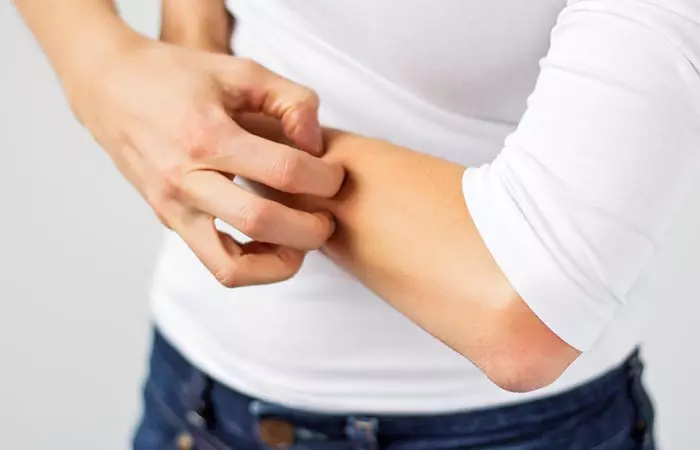
This is where the banana peel comes to the rescue, again. The sugars in the peel can help draw the fluid out of the mosquito bite. You just have to rub the inside of the peel on the affected area. But before using the peel, sanitize the affected area first.
14. Strengthen The Immune System
Banana contains copper that improves immunity by protecting the cells from damage during chemical reactions. It also is an important component of enzymes that metabolize iron, and yes, iron is also vital for the immune system.
The fruit also contains vitamin C that stimulates the production of the ever-important white blood cells. The vitamin also protects the white blood cells from the chemicals they release to destroy pathogens. Another crucial nutrient bananas contain is folate – this nutrient is required for the synthesis of cytokines, which are proteins that regulate the immune response.
Bananas contain another substance called banana lectin that is gaining prominence in the scientific realm. Also termed as BanLec, it reads the sugars outside both cells and viruses. In the future, this substance can keep deadly viruses (especially the ones causing AIDS) from entering the healthy cells (46). In one study, the very substance had protected mice from getting infected by the flu virus.
As per another report, the magnesium in bananas also has important functions for the immune system (47). And yes, the potassium in bananas can also enhance immunity.
15. Might Help Withdraw From Smoking Urge
Though there is limited research on this, eating bananas won’t do any harm. People who smoke often have higher levels of nicotine in their blood, which, in turn, urges them to smoke again. This cause a cycle of the unhealthy smoking habit. The potassium and magnesium in bananas are said to lower the nicotine levels in the blood, thereby helping smokers resist the urge.
16. Might Be Good For Diabetes
For diabetics, being aware of the carbs in the diet is vital. Because carbs raise blood sugar levels faster than other nutrients. And bananas contain carbs. About 93 percent of the calories in bananas come from carbohydrates. These carbohydrates are in the form of sugar, fiber, and starch.
But since bananas contain a lot of carbs, how is it even possible that they might be good for diabetes?
Well, bananas contain fiber as well. This fiber can help slow down the digestion and absorption of carbs (48). This prevents blood sugar spikes and regulates blood sugar levels.
Another important factor to be considered is the glycemic load, which is based on glycemic index (the extent to which any food can affect the blood sugar levels). The GI of bananas ranges from 42 to 62, depending on their ripeness. Which means they have a low glycemic load – and hence may not be as harmful to diabetics.
As already discussed, green (unripe) bananas also contain resistant starch. It acts like fiber and controls blood sugar levels. It also feeds the gut-friendly bacteria – this improves metabolic health and controls blood sugar spikes.
Vitamin B6 in bananas reduces stress as well – which can aid in diabetes management. One study states that daily consumption of bananas can marginally improve blood glucose levels in patients with type 2 diabetes (49). Another report by the University of Maryland Medical Center recommends banana intake during diabetes as the fruit is low in fructose (50).
17. Help Treat Anemia
Anemia, especially when caused during pregnancy, can be treated with the ideal dose of folic acid. The nutrient is a form of B vitamin found in foods, and bananas are blessed with a good amount of it. Folic acid prevents anemia in pregnant women and also promotes the health of the fetus (51).
The vitamin C in bananas also helps in the proper absorption of iron (and yes, iron is what one needs to fight anemia). Vitamin B12 helps treat pernicious anemia (when a body can’t produce enough red blood cells as it doesn’t have enough vitamin B12). Though bananas don’t contain encouraging levels of vitamin B12, the vitamin B6 they contain is required for the proper absorption and storage of vitamin B12. And the copper in bananas also aids in iron absorption.
18. Treat Nausea From Morning Sickness
Potassium in bananas can help relieve morning sickness. And so can the carbohydrates. However, more research is warranted in this regard.
19. Reduce Fever
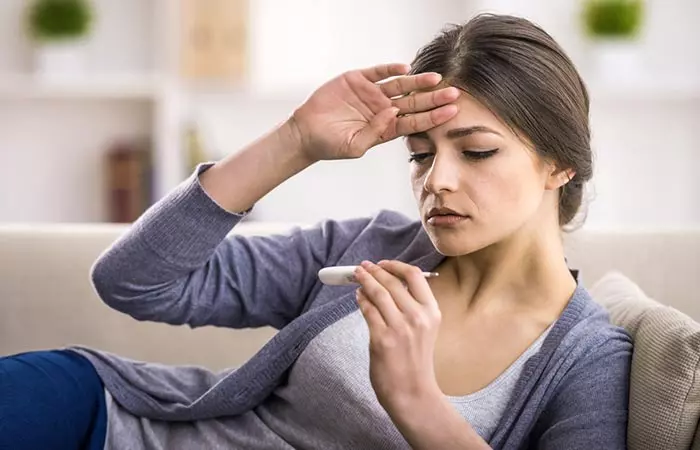
Excessive sweating, diarrhea, and vomiting are some of the common symptoms of fever. These symptoms deplete potassium levels in the body and cause weakness. Bananas, being rich in potassium, can be of great help. They can also help replace lost electrolytes, thereby accelerating recovery.
The flavonoid compounds in the fruit can decrease inflammation and boost immune activity – which invariably helps fight fever.
20. Enhance Mood
Since bananas help stabilize blood sugar levels, they enhance mood. And the vitamin B6 in the fruit relieves stress and anxiety. Bananas are also superb sources of tryptophan, the amino acid that stimulates the production of serotonin (also called the happiness hormone) (52).
Keeping your B-vitamin intake high can help ward off depression as you age. And bananas are replete with these vitamins. Potassium in bananas also positively impacts the brain neurons, the deficiency of which can lead to brain fog and other cognitive issues.
One medium banana contains about 785 mcg of niacin and 24 mcg of folic acid – B vitamins that help calm you down. And bananas might also help you with mood swings – especially those related to PMS. However, excessive vitamin B6 can harm your nervous system. So, take care.
One piece of conflicting research says that the serotonin in bananas doesn’t cross the blood-brain barrier – and hence may not be as effective in boosting mood (53).
21. Help Treat Piles
According to the Pacific College of Oriental Medicine, eating a banana on an empty stomach every day can help treat hemorrhoids. For bleeding hemorrhoids, three bananas a day can be a good choice (54).
22. Treat Insomnia
Potassium and magnesium in bananas help relax muscles and promote sleep. And the tryptophan in bananas has been used to treat numerous sleep disorders. A dose of tryptophan was also found to show improvement in patients with sleep apnea (55). Bananas also contain another compound melatonin that helps in insomnia treatment (56).
23. Can Promote Weight Loss
The fiber in bananas can aid weight loss. And since they also contain starch, they can control blood sugar levels. This is good for weight loss because excess sugar gets stored as fat in the body.
Research also shows that drinking probiotic banana juice can aid weight loss (57). Additionally, you can try the Morning Banana Diet for weight loss. This diet doesn’t have any strict meal plans or calorie counts. It just encourages you to eat fruit, be aware of your hunger, and finish off dinner by 8 PM. Only that you will eat what you will always have (for lunch and dinner), but stop when you are 80 percent full. You will also skip dessert. You will eat bananas (raw, and not cooked or frozen) for breakfast and drink room temperature water. You can have a snack just once – and that is in the afternoon. However, there is no concrete research that proves this diet works. All evidence is based on testimonials.
But then, excess banana intake can cause weight gain. Also, there is insufficient research as to how bananas can promote healthy weight gain. And if at all they can.
What Are The Benefits For Skin?
There is limited research on how exactly banana benefits the skin. The masks and packs mentioned here are based on testimonials and individual experiences. However, they weren’t found to cause any harm.
24. Moisturize Your Skin

Bananas are great natural moisturizers for your skin. The vitamin A present in bananas restores the lost moisture and repairs damaged, dull, and dry skin.
To instantly moisturize dry and dull skin, mash a ripe banana and apply it on your face. Avoid contact with the eyes. Leave it on for 20 to 25 minutes and then wash it off with lukewarm water. You will instantly have soft and supple skin. If you have extremely dry and flaky skin, you can add honey to this face mask. This banana and honey mask also helps in getting rid of skin pigmentation.
Another easy face mask to get moisturized skin is to mash half a ripe banana and mix it with 1 tablespoon of yogurt and 1 teaspoon of vitamin E oil. Apply it generously to a clean face and rinse it off after 30 minutes.
25. Help Skin Glow
Bananas contain good amounts of vitamin C that helps in maintaining the natural and youthful glow of the skin. You can bring back the lost glow using these face masks:
- Mash half a ripe banana and mix it with 1 tablespoon of sandalwood paste and ½ teaspoon of honey. Leave it on for 20 to 25 minutes and wash with lukewarm water. This face mask is beneficial for oily skin as sandalwood helps in cleaning excess sebum and oil from the skin while the banana keeps it moisturized.
A blogger recalls her personal experience of using banana and honey as a part of her everyday skincare routine. She shares how she prepares the mask by mixing mashed banana and honey together and applying it all over her face. She adds, “It’s absolutely one of my favorite masks! It leaves my skin beautifully moisturized and glowing! Rich in potassium and moisture, banana hydrates and moisturizes dry skin, making it soft (i).”
- Mash one ripe banana and mix it with lemon juice (from one lemon). Leave it on for about 20 minutes. This mask is full of vitamin C, which helps get rid of dullness and reduces spots and blemishes.
- You can also use banana milk for the face. Simply mash a ripe banana until you get a lump-free pulp. Now, add an equal amount of milk and mix well. If you have dry skin, you can also add a few drops of olive oil. Apply the mixture to your face and neck and leave it on for 20 minutes. You can probably eat another banana as you relax. Rinse with warm water first (to open the pores), and then with cold water (to close the pores).
26. Have Anti-Aging Benefits
The nutrients in bananas help fight wrinkles and keep the skin youthful.
For an anti-aging facial mask loaded with vitamins A and E, mash an avocado and a banana together. Leave it on your skin for 20 minutes and rinse. Your skin will become soft and youthful. The vitamin E in avocado combined with the nutrients in bananas fights free radicals and repairs damage.
You can also thoroughly mash 1/4 banana and add 1 teaspoon of rose water. Apply it to the face and neck and wash it off after half an hour.
27. Have Benefits For Foot Care
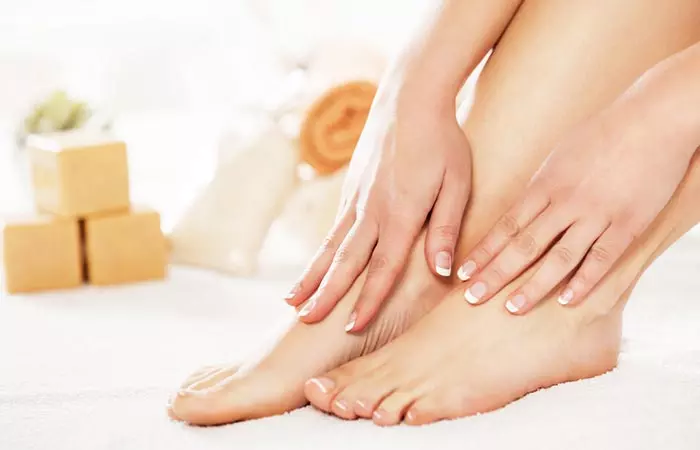
The moisturizing property of bananas can be used to get rid of cracked heels.
All you need to do is mash the pulp of two ripe bananas and apply to clean, dry feet. Leave it on for 10 minutes and rinse the feet with cold water. The banana pulp will penetrate deep into dry, cracked skin and give you soft and supple feet.
28. Help Treat Puffy Eyes
The nutrients in bananas can help calm the blood vessels under the eyes and reduce puffy eyes. All you need to do is mash half a banana and apply generously around the affected area. Let it sit for 15 to 20 minutes, post which you can rinse with cool water. The potassium in the banana draws out the excess fluid from under the skin and gives relief.
You can also apply the banana peels instead of the mashed fruit.
29. Help Remove Dead Skin Cells
You can prepare a banana scrub to exfoliate your skin. It is full of antioxidants, which not only help remove dead skin cells but also leave your skin feeling new.
Here are some banana scrubs you can prepare right at home:
– Take a mashed banana and 1 tablespoon of sugar and mix them well. Apply to your skin and rub in circular motions. The banana will moisturize the dry skin while the sugar granules will get rid of the dead skin.
– Mash a ripe banana. To this, add 2 to 3 tablespoons of oats and 1 tablespoon each of honey and milk. Apply on your face and leave it on for 5 minutes. Wash with cold water. In case you have extremely dry skin, you can substitute milk with fresh cream.
– Take 1/2 banana (ripe), 1 tablespoon of coconut milk, and 2 tablespoons of uncooked rice. Blend all to get a thick paste. Gently massage your face with this paste and then wash off with cold water.
– To make a body scrub, mash 2 bananas with 4 to 5 strawberries using a blender. Mix 3 tablespoons of sugar and use it as a body scrub when you take a bath.
30. Help Treat Acne
You can use a banana peel to treat acne. Want to know how to treat acne with banana peels? Here is the trick! Cut a small piece of the peel and gently rub the inside of the peel over the acne-affected area. Do this for about 5 minutes or until the inside of the peel turns brown. Let the banana on your skin dry out. Cleanse with lukewarm water. Repeat this at least 3 times a day for best results.
31. Aid In Treating Itchy Skin, Warts, And Psoriasis
For itchy skin, simply rub the inside of the banana peel on the affected area, and you will find relief.
For treating warts and psoriasis, just apply the banana peel to the affected area and rub it for 10 to 15 minutes twice every day. You can use this in addition to your medication. However, do talk to your dermatologist for advice.
32. Help You Achieve Beauty Sleep
We all know how essential a good night’s sleep is for maintaining skin health. Melatonin is the sleep inducing hormone in the human body and tryptophan is the amino acid that is necessary for the production of this sleep hormone.
We already saw how bananas could help induce sleep. Eating bananas a few hours before going to bed will help you get that essential beauty sleep – which basically means you are encouraging your skin to repair itself as you sleep.
What About Hair?
33. Enhance Hair Health And Appearance

Bananas contain folic acid that makes your hair shine (58). They also keep your hair moisturized and well hydrated (59). The potassium in the fruit and the other natural oils also improve hair health (60).
There are numerous banana hair packs that help your hair in different ways:
For Soft Hair
- Mix a ripe banana with avocado and add coconut milk to the mixture.
- Apply it to your hair and wait for 15 to 20 minutes.
This pack conditions damaged hair and makes the hair soft. Instead of avocado, you can also make the same pack by adding cocoa. The presence of cocoa helps in bringing out the natural color of the hair. Using a homemade banana hair conditioner like this is a fantastic way to naturally enhance your hair’s health and appearance.
For Shiny Hair
- Peel a banana and add 1/4 cup of olive oil and one egg white.
- Add all the ingredients to a blender and puree for a couple of minutes.
- Apply the mixture to your hair and let it stay for 15 minutes.
- You can then wash your hair with your favorite shampoo and conditioner.
For Strong Hair
- Mix the pulp of a ripe banana with yogurt.
- Apply the smooth paste to your scalp and rinse with cool water after 15 to 20 minutes.
For Dry Hair
- Mix 3 teaspoons of honey with the pulp of a ripe banana.
- Apply the mask to your hair while it is still wet.
- Let it sit for 15 to 20 minutes.
- Shampoo and condition your hair.
For Damaged Hair
- Make banana pulp and add a few drops of almond oil to it.
- Apply the mixture to your hair and leave it on for 10 to 15 minutes. The vitamins A and C present in the banana, along with the vitamin E in almond oil, leave your hair silky, shiny, and, not to mention, moisturized and soft.
Something Important To Be Noted –
While applying any of the above banana hair masks, it is essential to keep two things in mind so that you don’t end up with chunks of banana in your hair post hair wash.
First, whenever you use a banana for hair mask, make sure it is in the pulp form and there are no chunks. Just to be sure, blend all the contents of the hair mask.
Second, never let these hair masks dry on your hair completely. The hair mask should still be wet when you wash your hair so that you can easily get rid of the banana, which otherwise tends to stick. You might feel that your hair is a little stiff when it is drying, but once it dries completely, you will be able to see the results.
And now for some delectable (yet simple) banana recipes.
Any Popular Banana Recipes?
Frankly speaking, you can use bananas in literally any recipe. It is one of the most versatile fruits, which can be easily consumed by removing the peel or can be used in preparing smoothies, salads, snacks, ice creams, etc. Whether it is cakes, baked items or desserts, you can make them using bananas. Raw banana flour is a gluten-free alternative with a light banana flavor that can be used to bake banana bread.
And here, we have some of the popular recipes with the fruit.
1) Banana Breakfast Shake
What You Need
- 2 large overripe bananas, peeled, sliced, and frozen
- 1 cup of almond milk
- ¾ cup of ice
- ¼ cup of peanut butter
- 2 tablespoons of cocoa powder, unsweetened
- ½ teaspoon of vanilla extract
Directions
- Add all the ingredients to blender and process until well pureed.
- Serve right away.
2) Banana Avocado Smoothie
What You Need
- 1 banana
- 1 medium soft avocado, peeled
- ½ cup of natural Greek yogurt
- 1 cup of unsweetened almond milk
- 1 teaspoon of natural vanilla extract
- 1 teaspoon of maple syrup or honey
- Crushed ice, as required
Directions
- Toss all the ingredients into a blender and process until well pureed.
- Serve right away.
3) Banana Bran Muffins
What You Need
- 1 ½ cups of natural bran
- 1 cup of all-purpose whole wheat flour
- ½ cup of packed brown sugar
- 1 ½ teaspoons of baking powder
- ½ teaspoon of baking soda
- 1 teaspoon of cinnamon
- ¼ teaspoon of salt
- 2 eggs
- 1 cup of mashed banana (2 medium bananas)
- ½ cup of milk
- 1/3 cup of vegetable oil
Directions
- Preheat the oven to 375o F. Line 12 muffin cups with paper liners.
- In a medium bowl, combine the bran, flour, brown sugar, baking powder, baking soda, cinnamon, and salt.
- In another bowl, beat the eggs, mashed banana, oil, and milk.
- Add the banana mixture to the dry mixture.
- Spoon it into the prepared muffin cups.
- In the preheated oven, bake it for about 20 minutes.
- Serve.
4) Banana Tea
What You Need
- 1 banana, with the ends sliced off
- 6 cups of filtered water
- Cinnamon or honey as required, to taste
Directions
- In a stainless steel pot, bring the water to a boil.
- Add the banana to the boiling water.
- Allow the fruit to steep for about 10 minutes.
- Remove the boiled bananas from the heat and strain the tea.
- To this add cinnamon or honey.
- Serve.
5) Banana Oatmeal Cookies
What You Need
- 1 cup rolled oats
- ½ cup chocolate chips or raisins
- 1 cup of mashed bananas (2 medium-sized bananas)
- ¼ cup of milk
- ½ teaspoon vanilla extract (optional)
Directions
- Preheat the oven to 350°F.
- Put parchment paper on a baking tray.
- In a bowl, mash the bananas until smooth and stir in the oats until well combined.
- Add the additional ingredients like chocolate chips and vanilla extract if desired and mix thoroughly.
- Add ¼ cup of milk or as required, ensuring the consistency is thick.
- Scoop spoonfuls of the mixture onto the baking sheet, flattening each one slightly.
- Bake for 10 to 15 minutes or until the edges are golden in color.
- Cool the cookies before serving.
The recipes are great. But how can you make them without knowing how to pick the right bananas or how to store them properly?
How To Select Bananas? What About The Storage?
Selection
Ensure the bananas are mostly yellow with some green at both ends. Also, if you are going to use right away – pick the already ripe bananas (yellow with brown spots). If you are going to use them later, you can pick those that are slightly green.
Storage
If you want to preserve the bananas for an extended period, store them at room temperature. They must be away from direct heat and sunlight. Also, store bananas by themselves and not with other fruits (doing so might hasten the ripening of the other fruits).
If you have peeled a banana already, eat it right away. Exposure to air can cause discoloration. A ripened banana can last for no more than two days.
And to encourage faster ripening, place the bananas in a brown paper bag at room temperature.
And if you are wondering…
How To Incorporate More Bananas Into Your Diet
Darn simple.
- You can use mashed bananas in baked goods in place of oil and butter.
- Ripe bananas have a unique sweet taste and can be used as a natural sweetener to replace sugar in baking, perfect for having a little dessert when on a diet.
- You can also freeze bananas and use them as a smoothie ingredient for a healthy breakfast option or pre-workout drink.
- You can add sliced bananas to your morning breakfast cereal.
- For a healthy snack, you can top your toast with peanut butter and banana slices.
Simple.
And…
Any Fascinating Banana Facts?
- Bananas are radioactive as they contain high levels of potassium.
- There are about 1,000 different types of banana plants.
- Over 100 billion bananas are consumed in the world every year.
- Ugandans consume an average of about 500 pounds of bananas per person in a year.
- A cluster of bananas is called a hand. And a single banana is called a finger.
 Trivia
TriviaBananas (the parts of the plant) have other uses too.
What Are The Other Uses Of Bananas?
Not just the fruit, even the other parts of the banana plant have uses.
Banana Flowers – Also called banana buds, their extracts (ethanol-based) can be used to ward off infections. Consuming one cooked banana flower with a cup of yogurt can relieve excessive bleeding during menstruation.
Banana Leaves – You can use the leaves for serving food. You can also use them to shape the batter before deep frying.
Banana Stem – The stem is rich in fiber and can be used to provide constipation relief. You can prepare the juice and have it along with the residue.
 Fun Fact
Fun FactYou can also eat bananas at specific times during the day.
How And When To Eat Bananas
- Before Your Workout
Also called nature’s power bar, the digestible carbohydrates and potassium in bananas help maintain nerve function. Having a medium banana before a workout can keep the nutrient levels high. Just have a medium banana after you wake up, along with half a cup of Greek yogurt. Hit the gym after 30 minutes. You will see the difference.
- For Breakfast
You can team it up with your breakfast cereal. Or you can have a banana milkshake. But ensure not to have a banana alone for breakfast. Though it may give you a quick energy boost, you might soon feel tired and hungry (61).
You can also opt for the Morning Banana Diet, which we have discussed earlier in this post. Bananas are paleo-friendly as they can be consumed in raw, unprocessed form.
- As A Healthy Evening Snack
Simply spread a tablespoon of peanut butter on a banana. Or you can make bananas a part of your salad or a healthy snack.
- In The Night
You can have a banana after your dinner.
All good. But bananas do have their share of certain ill effects. You need to know about them too.
What Are The Side Effects Of Eating Too Many Bananas?
- Headache And Sleepiness
The amino acids in bananas can dilate the blood vessels, and this can cause headaches. Also, since they contain tryptophan, eating too many of them can cause sleepiness.
- Tooth Decay
If you don’t maintain dental hygiene, that is. Because bananas are rich in sugars, they can cause tooth decay if you don’t rinse your mouth properly.
- Hyperkalemia
Overconsumption of potassium can lead to hyperkalemia, the symptoms of which include muscle weakness and irregular heartbeat. Though it can have serious consequences, you will be required to eat 43 bananas in a short span of time for that to happen.
So unless you are determined to win a banana eating competition, you don’t have to worry.
- Blood Sugar
Excess banana intake might increase blood sugar levels. Though the fruit has fiber to counter this effect, still, if your sugar levels are on the edge, take care and consult your doctor. Don’t take a chance.
- Kidney Disorders
If you are suffering from any kidney disorder, reduce banana consumption. Because damaged kidneys allow potassium to build up in your blood, leading to heart complications (62).
All of these side effects can pose serious health risks. Which begs the question- who should avoid eating bananas? Read on to know more.
Who Should Not Eat Bananas?
The above-mentioned side effects associated with bananas show not everyone can consume bananas. You should avoid eating bananas or limit their consumption if you:
- Have latex allergy
- Have kidney issues
- Are taking beta-blockers
- Are prone to migraines
- Have diabetes
- Are following a carb-restricted diet
- Are on low-potassium diet
Therefore, it is best to consult a healthcare professional or a nutritionist if you have specific health concerns or dietary restrictions to determine if bananas are suitable for your diet.
Infographic: 6 Health Benefits Of Bananas
Apart from being one of the most affordable fresh fruits you can get, bananas are also wonderfully healthy, practical, and convenient. Due to their fiber and antioxidant content, they may improve your heart health and digestion. Additionally, due to their high nutrient density, low calorie count, and filling nature, they may also aid in weight loss. For more information on the health benefits of bananas, see the infographic below.

Illustration: StyleCraze Design Team
Bananas are among the most widely consumed fruits due to their widespread availability. On the other hand, this fruit is not only tasty but also has several health, skin, and hair benefits. It is an integral part of vegan diet plans. Although eating a banana may give you an energy boost, using its mush might help you obtain attractive skin and healthy hair. As a result, incorporating bananas into your skin care regime is a fantastic way to gain the benefits of the fruit’s potassium and vitamins content. So, do not wait any longer to add this simple yet nutrient-dense fruit into your daily diet and watch how it transforms you.
Frequently Asked Questions
Can bananas trigger allergic reactions in some people?
Dermatologist, Dr. Archit Aggarwal, says, “Banana allergies are relatively rare. However, some individuals may experience mild allergic reactions like skin rash, itching, or oral swelling.”
Can eating too many bananas lead to potassium toxicity in babies?
Dr. Aggarwal says, “Excessive potassium intake (rarely from bananas alone) can lead to muscle weakness, irregular heartbeat, and in severe cases, paralysis. However, he also adds, “While bananas are rich in potassium, the amount consumed by babies through breastfeeding or age-appropriate servings of bananas is unlikely to cause potassium toxicity.”
Are bananas fattening?
No. They are not. They don’t contain any fat or cholesterol by themselves.
Which banana should you eat – ripe or unripe?
Both have an equal share of pros and cons. Ripe bananas are easier to digest and have a higher concentration of antioxidants. But since they are high in sugar, they can cause concern for patients with diabetes.
Unripe bananas are high in resistant starch and are a good alternative for people trying to avoid foods high in sugar. They also improve colon health. But they have a lower concentration of antioxidants. They might also cause bloating due to the content of resistant starch.
Is it healthy to eat bananas at night?
Yes. Doing so has a relaxing effect on your muscles and helps you sleep well.
How many bananas can I eat in a day?
Five to six. Going beyond that number can spike the potassium levels.
Is it good to eat bananas after a workout?
Yes. They offer you the carbs you need after a workout. These carbs replenish the body’s glycogen, which rebuilds damaged muscles.
Should you cut the ends of bananas?
Yes, if you want to keep them fresh for a couple of more days. Banana ends are safe to consume, and they are usually cut off to delay the activity of ethylene gas. This delays the ripening process.
Can we eat bananas after drinking water?
Yes. However, avoid doing so if you are prone to an upset stomach. According to anecdotal evidence, consuming fluids along with bananas may lead to indigestion.
Is it OK to drink coffee after eating a banana?
While both ingredients are safe to consume, they might have opposing effects on your sleep and alertness. Bananas tend to promote relaxation and have sedative effects, while the caffeine in coffee has a stimulant effect.
Illustration: Wonderful Benefits Of Banana For Skin Hair And Health
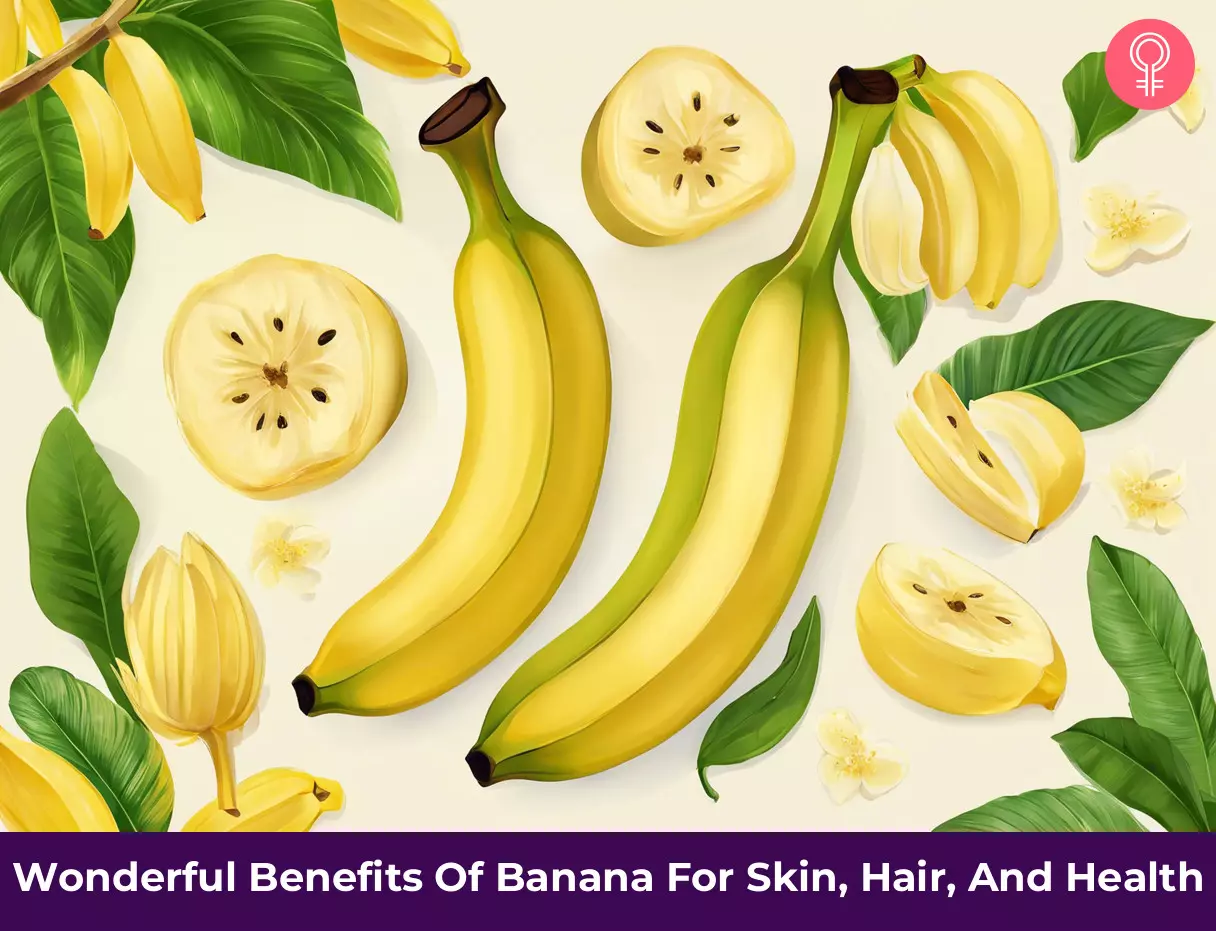
Image: Stable Diffusion/StyleCraze Design Team
Bananas are a superfood you should include in your diet! Watch this video to learn about how this amazing fruit benefits your health and well-being.
Personal Experience: Source
StyleCraze's articles are interwoven with authentic personal narratives that provide depth and resonance to our content. Below are the sources of the personal accounts referenced in this article.
i. My 3 Simple ways to get beautiful glowing skin!https://beautifulyou91.wordpress.com/2016/10/29/my-3-simple-ways-to-get-beautiful-glowing-skin/References
Articles on StyleCraze are backed by verified information from peer-reviewed and academic research papers, reputed organizations, research institutions, and medical associations to ensure accuracy and relevance. Read our editorial policy to learn more.
- “Whole Fruits and Fruit Fiber Emerging Health Effects” Nutrients, US National Library of Medicine, National Institutes of Health.
- “Short-chain fatty acids and human…”. Commonwealth Scientific and Industrial Research Organization, Australia. 2001 July.
- “Insulin-sensitizing effects of dietary resistant starch…”. Oxford Centre for Diabetes, UK. 2005 September.
- “Magnesium in disease”. Oxford Academic Journal. 2012 January.
- “EXTRACTION AND EVALUATION OF PHYTOCHEMICALS FROM BANANA PEELS (Musa sapientum) AND BANANA PLANTS (Musa paradisiaca)”. Malaysian Journal of Halal Research Journal (MJHR), 2019.
- “Heart failure and potassium”. Harvard Medical School.
- “Could eating one banana a day cut your risk of dying from a heart attack by a THIRD?” Express. 2016 April.
- “The heart and potassium: a banana republic”. King’s College London, London, UK. 2013 March.
- “Low potassium level”. US National Library of Medicine.
- “Heart Healthy Living.” National Heart, Lung, and Blood Institute.
- “Heart-healthy diet”. University of Maryland Medical Center.
- “How Potassium Can Help Control High Blood Pressure”. American Heart Association. 2016 December.
- “7 Foods That Lower Your Blood Pressure”. Forbes. 2012 October.
- “Manganese action in brain function”. University of Shizuoka, Japan. 2003 January.
- “Nutritional aspects of manganese homeostasis”. Vanderbilt University Medical Center, USA. 2005 October.
- “Vitamin B6”. US National Library of Medicine.
- “How a banana a day can keep strokes at bay”. DailyMail.
- “Potassium intake and risk of stroke in hypertensive…“,US National Library of Medicine, National Institutes of Health.
- “Will a banana a day keep a stroke away?”. American Academy of Neurology. 2002 August.
- “Dietary potassium intake and risk of stroke: a dose-response meta-analysis of prospective studies”. US National Library of Medicine, 2011 July.
- “Food and Your Bones —Osteoporosis Nutrition Guidelines”. National Osteoporosis Foundation.
- “Silicon and bone health”. King’s College, London. 2007 April.
- “Potassium, magnesium, and fruit and vegetable intakes…“,ScienceDirect
- “Potassium good for heart, bones and muscles”. Colorado State University. 2015 November.
- “Potassium”. Oregon State University.
- “The effects of high potassium consumption on bone mineral density…”. Sir Charles Gairdner Hospital, Australia. 2009 February.
- “Potassium and health”. Purdue University, USA. 2013 May.
- “When you have diarrhea”. US National Library of Medicine.
- “Diarrhea“, US National Library of Medicine
- “The anti-ulcerogenic activity of the unripe plantain banana”. US National Librabry of Medicine. 1984 May.
- “Systematic review: the effects of fibre in the management of chronic idiopathic constipation”. Leeds Gastroenterology Institute, UK. April 2011.
- “Diets for constipation”. Konkuk University School of Medicine. 2014 December.
- “Cheese sandwich, a banana but definitely…”. DailyMail. 2011 December.
- “NJ Army National Guard…”. Department of Military and Veterans Affairs. 2003 August.
- “Banana, raw“, U.S Department of Agriculture
- “Hangover Shmangover…”. Reporter. 2014 October.
- “Eat your way to healthier, whiter teeth”. Total Dental Administrators Health Plan.
- “Nutrition Therapy for Mental Health” Connecticut’s Official State Website.
- “Reducing occupational stress with a B-vitamin focussed intervention…” Nutrition Journal, National Library of Medicine
- “Bananas as an Energy Source during Exercise…“,PLOS One, National Library of Medicine
- “Bananas are as beneficial as sports drinks, researchers find”. Appalachian State University. 2012 May.
- “Tumor Necrosis Factor in Bananas Help Prevent Cancer”. Asian Fund for Cancer Research Limited. 2013 July.
- “Vegetables, fruits, and risk of colorectal cancer”. Instituto Nacional de Oncologia, Uruguay. 1996.
- “A case-control study of diet and lung cancer in Kerala, South India”. Regional Cancer Centre, India. 1994 September.
- “Muscle cramps”. US National Library of Medicine.
- “Drug engineered from bananas shows promise in fighting deadly viruses”. University of Michigan. 2015 October.
- “Vitamins and minerals”. Mayo Clinic.
- “Effects of dietary fiber and its components on metabolic health”. Kansas State University, USA. 2010 December.
- “Bananas as an Energy Source during Exercise…“,PLOS One, National Library of Medicine
- “Diabetes diet”. University of Maryland Medical Center.
- “How is anemia treated?” National Heart, Lung and Blood Institute.
- “Eat yourself happy with food to improve your mood and mental health”. Mirror. 2016 July.
- “How to increase serotonin in the human brain without drugs”. McGill University, USA. 2007 November.
- “Soothing, natural cures for hemorrhoids”. Pacific College of Oriental Medicine.
- “L-Tryptophan: Basic metabolic functions…”. University of Texas Health Science Center at San Antonio, USA. 2009 March.
- “Sleep disorders”. The Poarch Band of Creek Indians.
- “Pathophysiology of high fat diet induced obesity…” Krijan Biotech, India. 2020 October.
- “Folic acid is a B-vitamin your body needs every day”. California Department of Public Health.
- “Traditional and Medicinal Uses of Banana.” Journal of Pharmacocognosy and Phytochemistry. 2012 January.
- “Soft & silky hair”. Berkely Center for Environmental Research and Children’s Health.
- “Why you shouldn’t eat a banana for breakfast”. New Zealand Herald. 2016 August.
- “Diet & Nutrition for Adults with Advanced Chronic Kidney Disease.”. National Institute of Diabetes and Digestive and Kidney Diseases.
Read full bio of Julie Freeman
- Dr. Archit Agarwal, MD, is a dermatologist with nine years of experience. He specializes in treating individuals with complex skin conditions and has authored several papers that have been published in high-impact medical journals. Dr. Agarwal earned his medical degree from the Hassan Institute of Medical Sciences, Rajiv Gandhi University of Health Sciences, Karnataka, and a Fellowship in Aesthetic Medicine from the University of Greifswald in Germany.
 Dr. Archit Agarwal, MD, is a dermatologist with nine years of experience. He specializes in treating individuals with complex skin conditions and has authored several papers that have been published in high-impact medical journals. Dr. Agarwal earned his medical degree from the Hassan Institute of Medical Sciences, Rajiv Gandhi University of Health Sciences, Karnataka, and a Fellowship in Aesthetic Medicine from the University of Greifswald in Germany.
Dr. Archit Agarwal, MD, is a dermatologist with nine years of experience. He specializes in treating individuals with complex skin conditions and has authored several papers that have been published in high-impact medical journals. Dr. Agarwal earned his medical degree from the Hassan Institute of Medical Sciences, Rajiv Gandhi University of Health Sciences, Karnataka, and a Fellowship in Aesthetic Medicine from the University of Greifswald in Germany.
Read full bio of Ravi Teja Tadimalla
Read full bio of Arshiya Syeda
Read full bio of Aparna Mallampalli





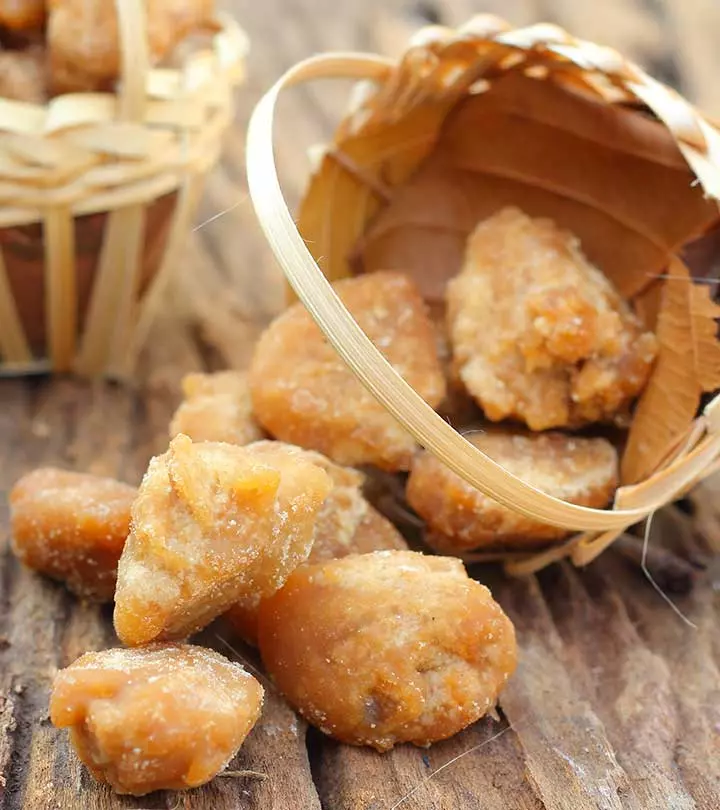
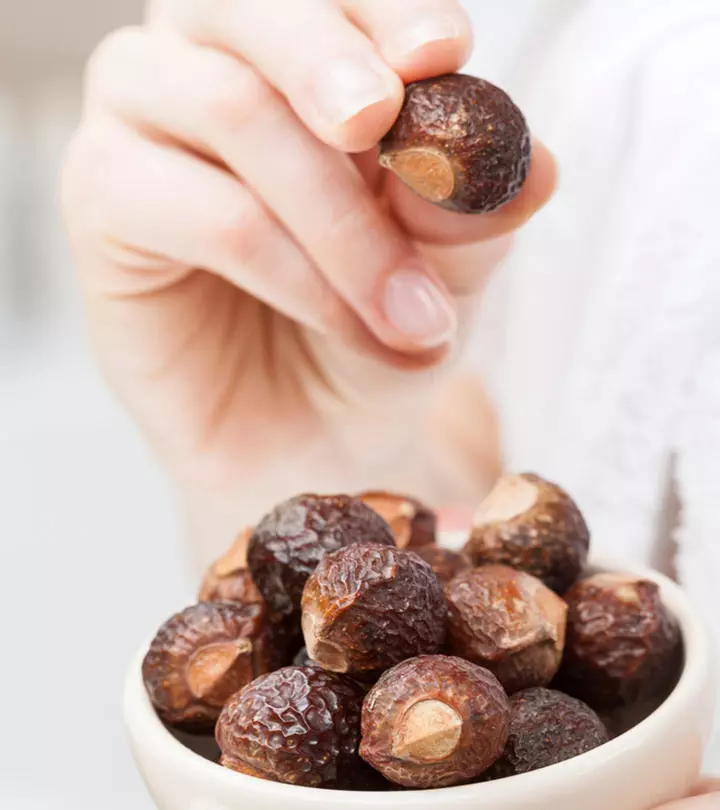
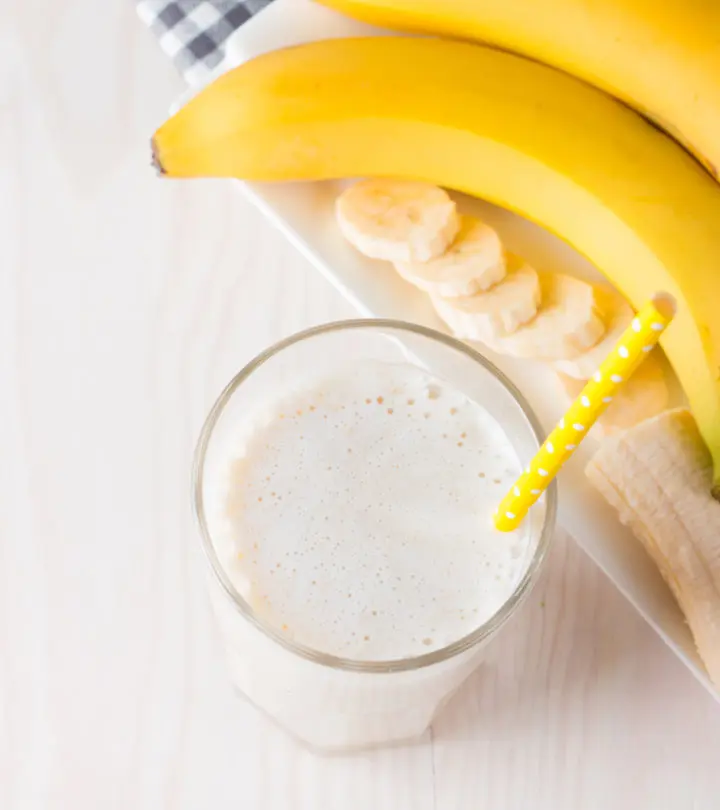
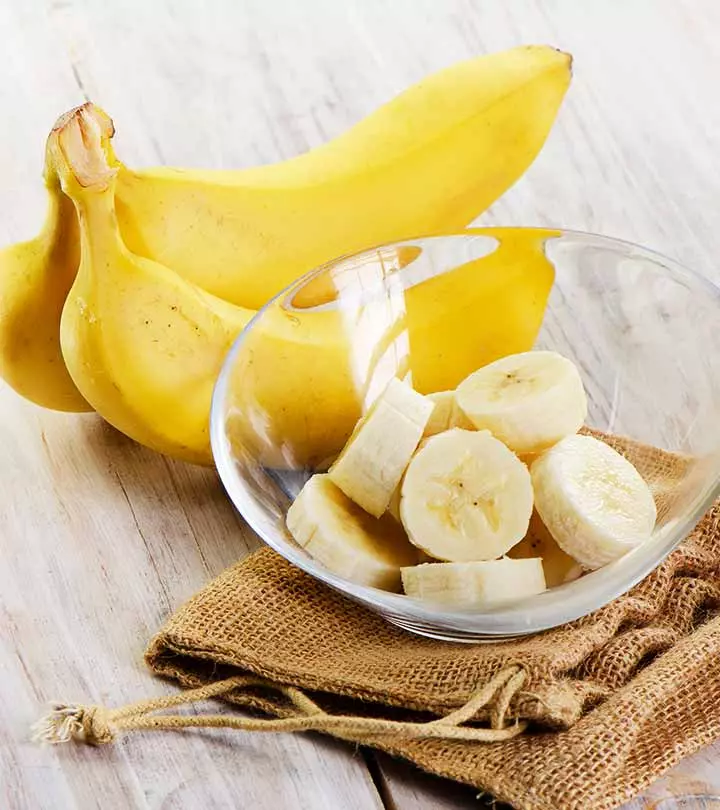
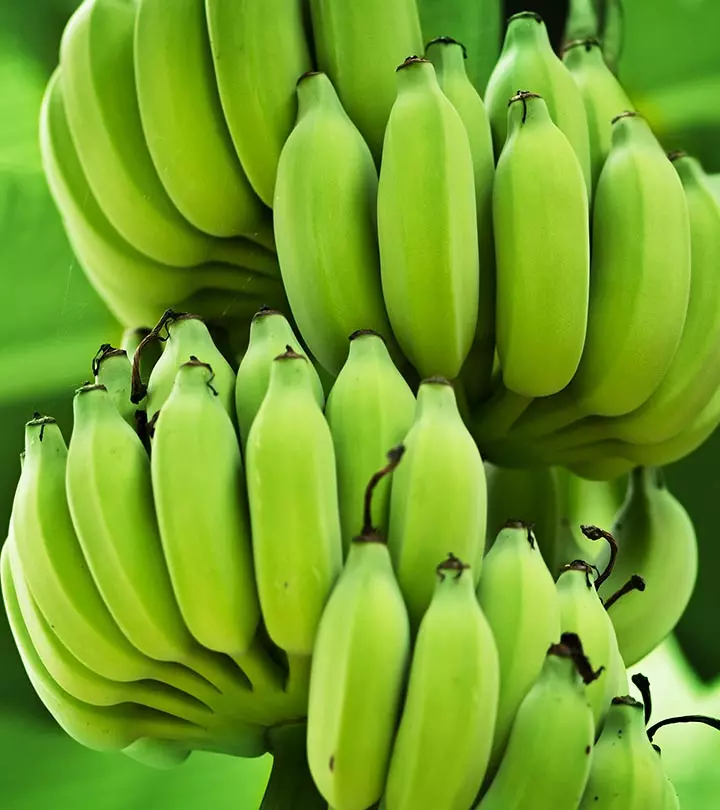
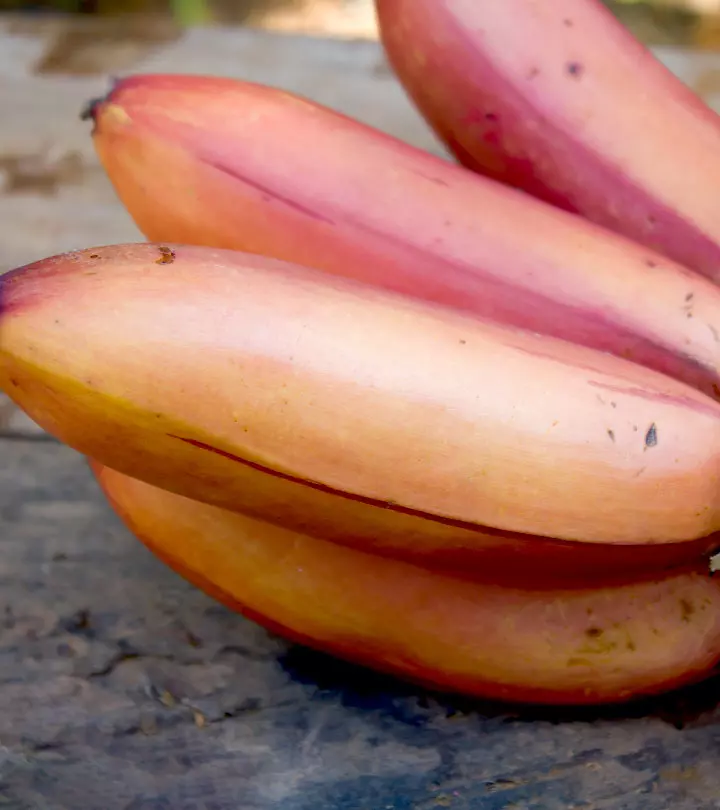
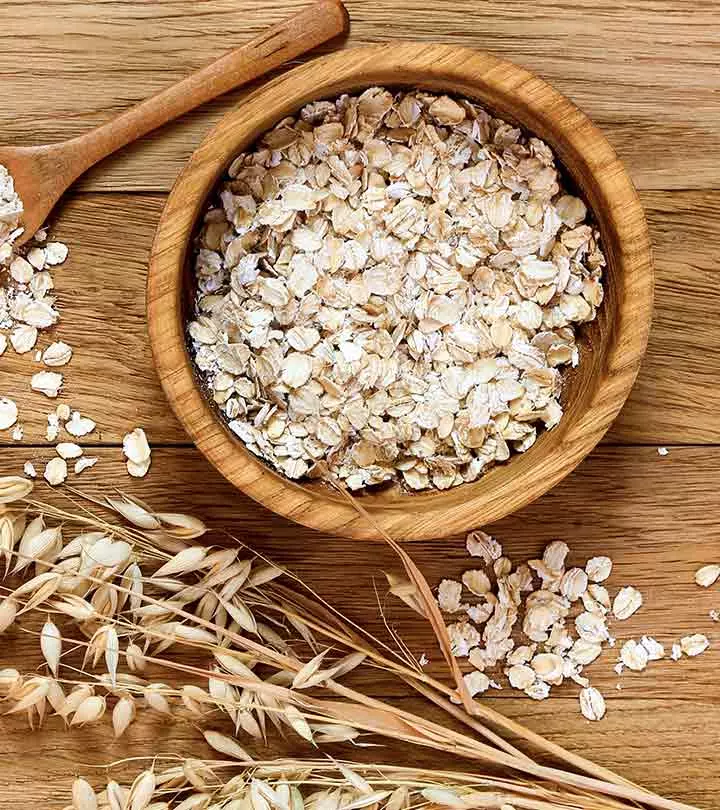
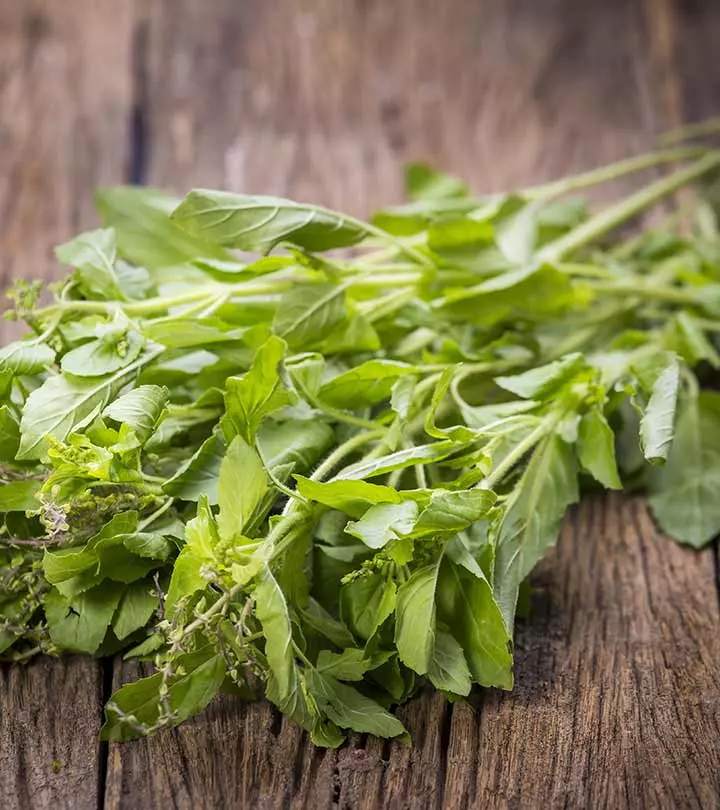
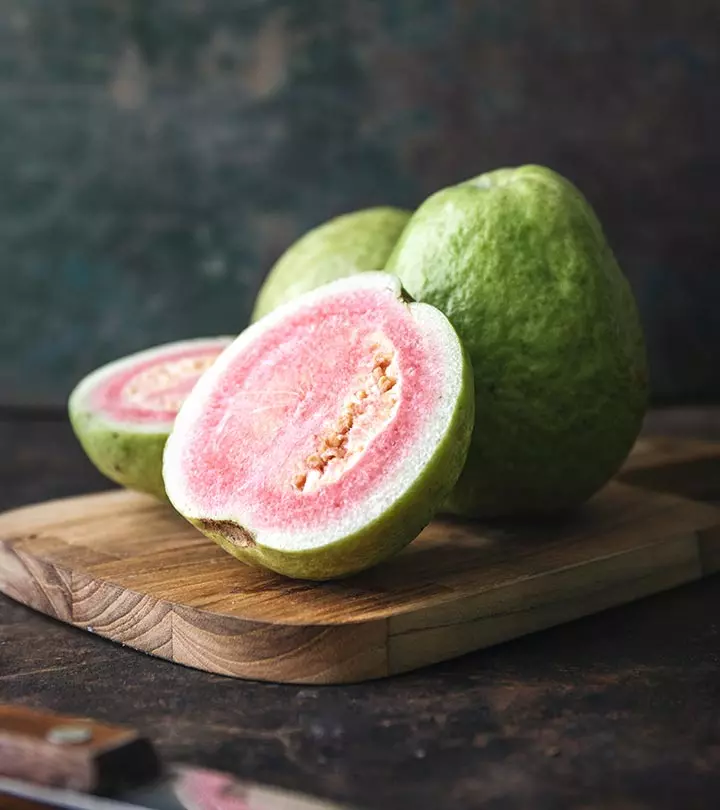
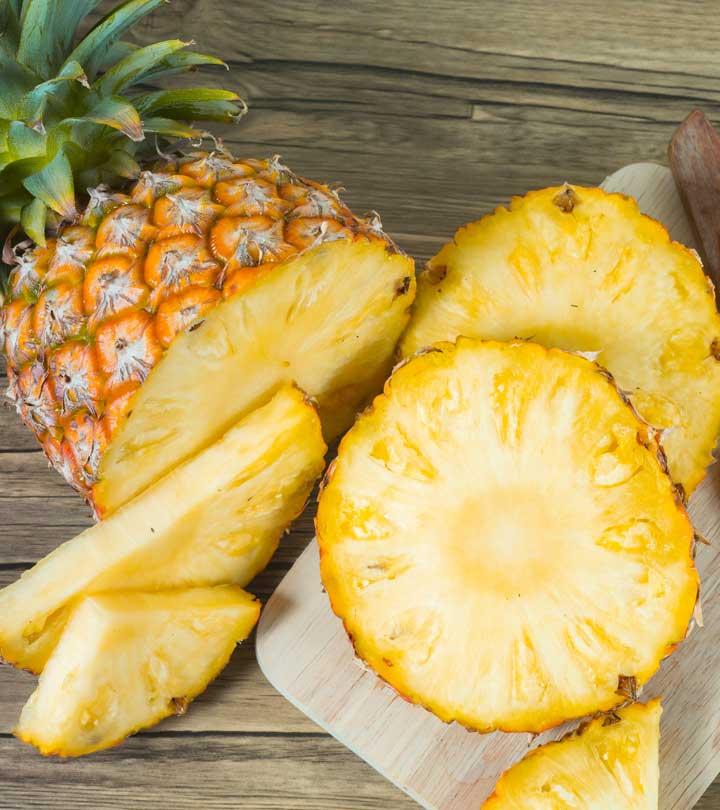

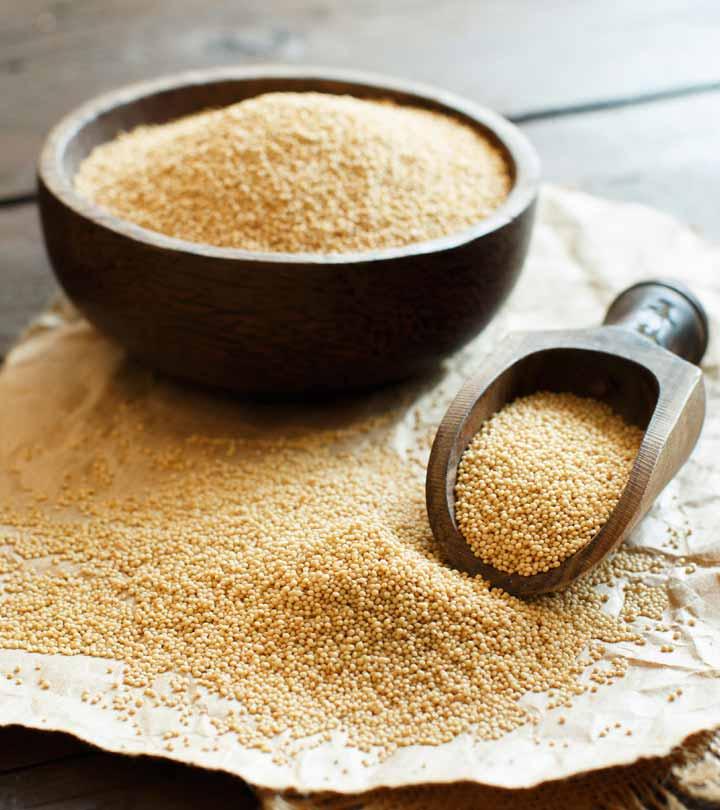

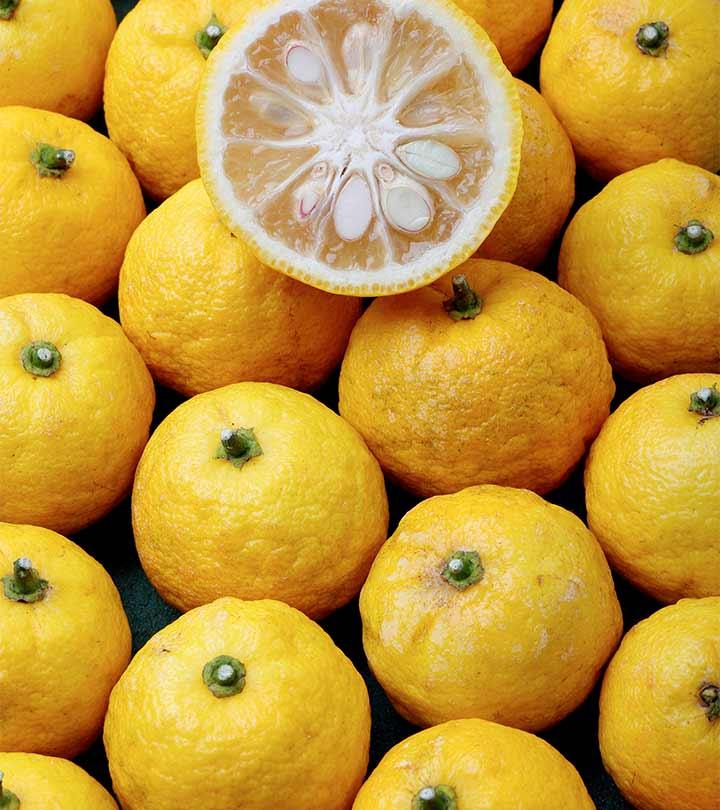
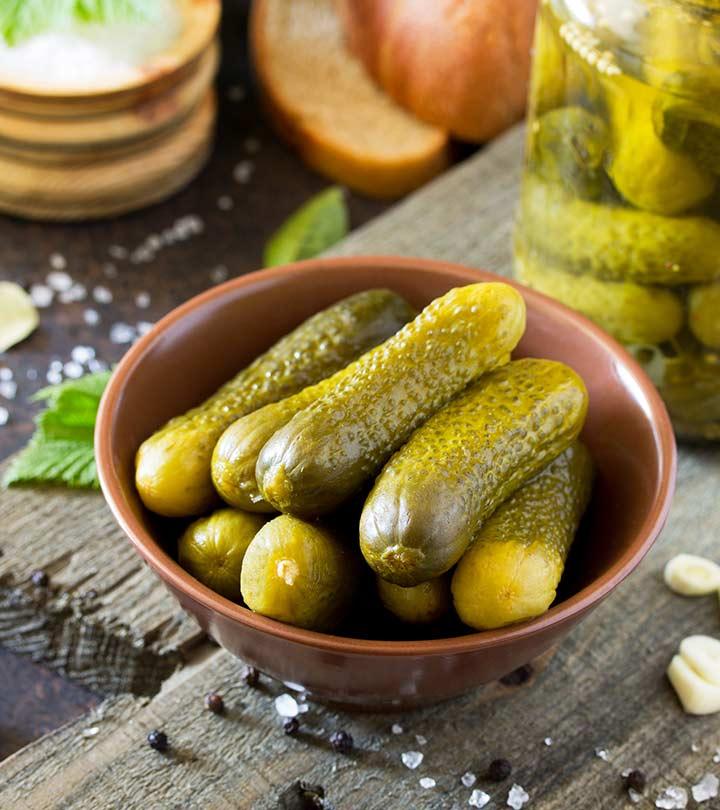
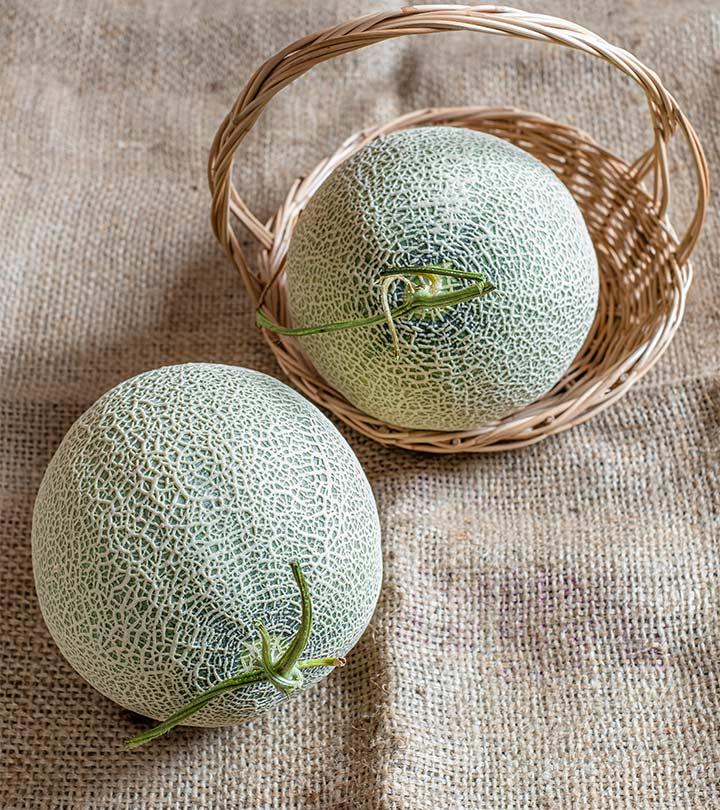
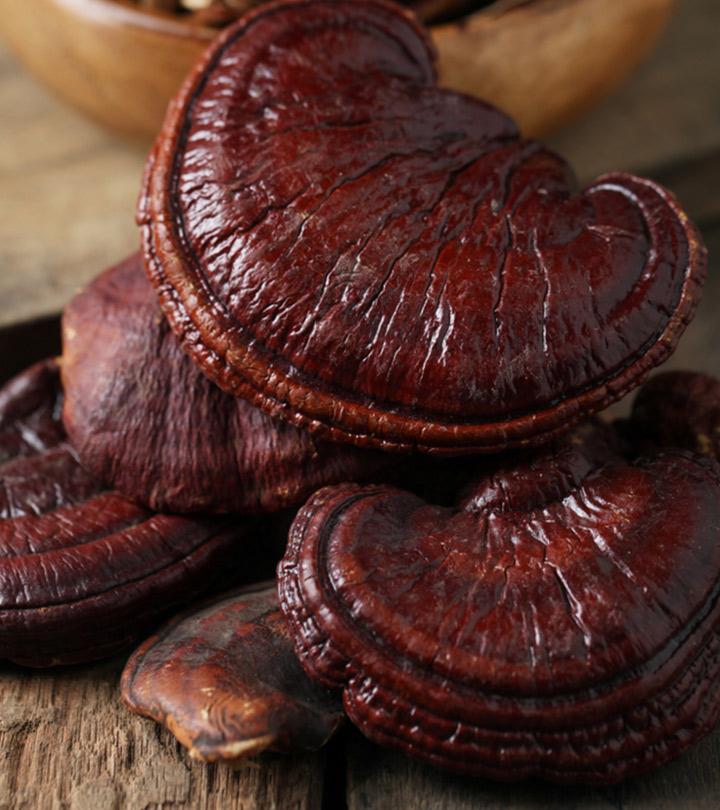
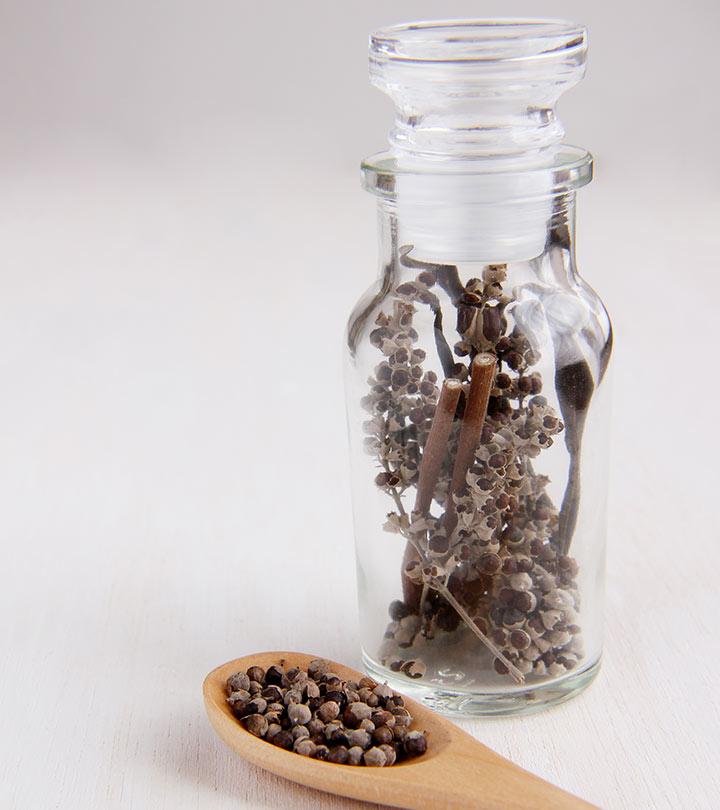
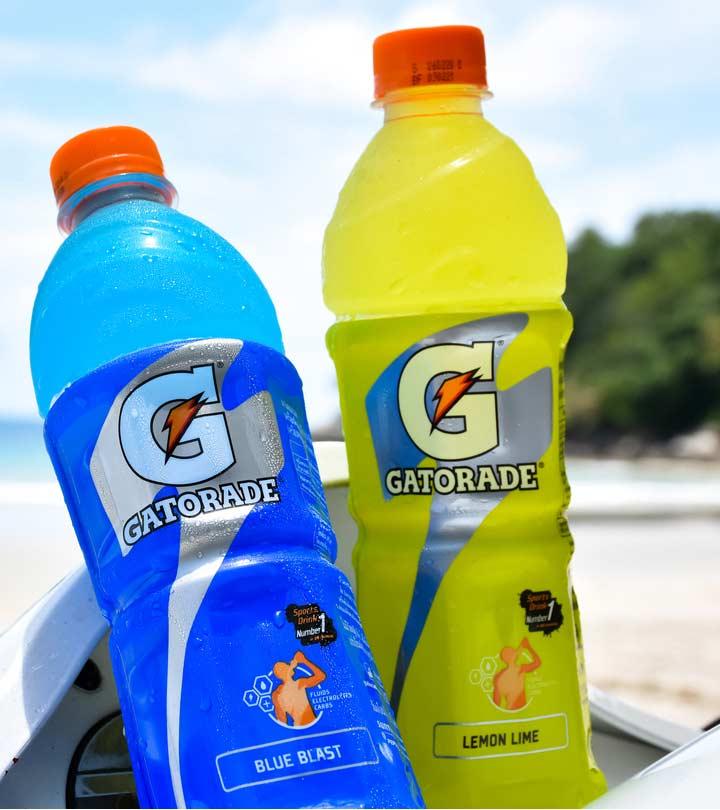
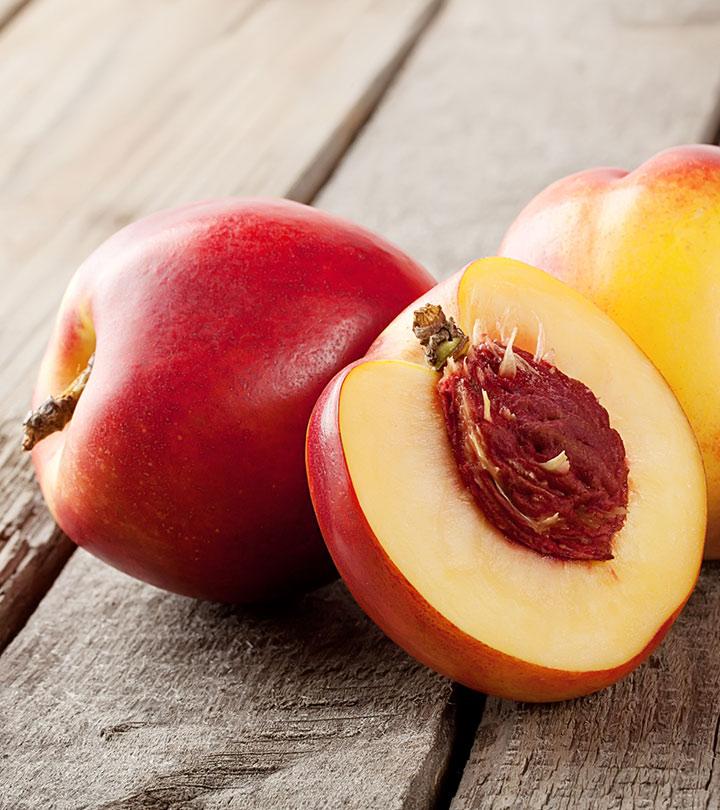
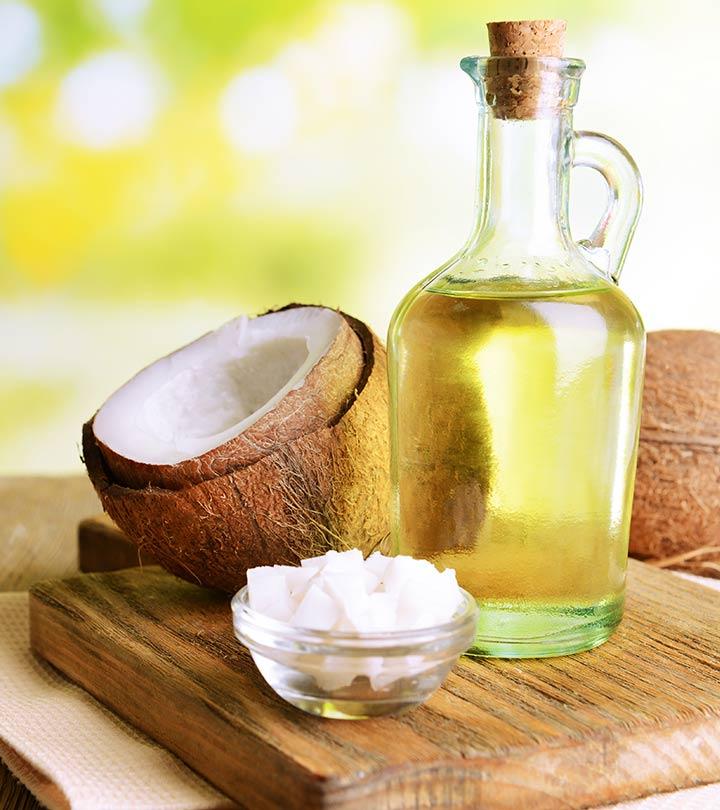
Community Experiences
Join the conversation and become a part of our empowering community! Share your stories, experiences, and insights to connect with other beauty, lifestyle, and health enthusiasts.